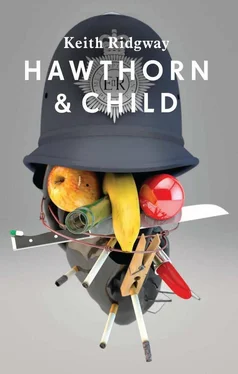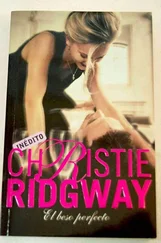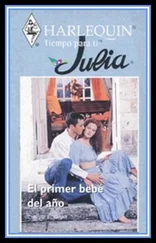When nothing is happening we want something to happen, and when something is happening we want it to stop.
There is always something happening on the Internet.
I sit at my kitchen table. I make a cup of tea.
The Zapruder film. Hillsborough. Bloody Sunday. The shooting of Oswald. The audio of Bobby Kennedy’s murder. The calls from the towers. The planes going in. The jumpers. The suicide of Pennsylvania State Treasurer Budd Dwyer on live television. He stuck a gun in his mouth and blew the back of his head off. The camera zooms in on his dead face, the blood pouring out of him like the water out of my overfilled kettle. I don’t know what to do about it.
The Madrid bombs. Running up those stairs. The Enschede explosion. Laughter then fear then the world just goes dark and sideways.
Tamil suicide bombers flinging parts of their bodies into the crowd like pop stars.
Iraqi IEDs. Hostage murders. Car bombs by the Green Zone.
Hundreds of dead people. Around craters in Baghdad, Tikrit and Ramadi. British armaments. American armaments. You can see the markings and the peeled-back steel.
There are photographs of aftermaths. Blood and stumps and crushed torsos. All the devil’s little mandibles. Misery hats. Pockets of tissue. Cups of tea. There are interviews with people in shock. They cannot begin to believe what they have seen until they tell someone else what they have seen. They shout at the camera, they use their hands, they say things over and over. They’re actually talking to themselves, and we are watching.
I am talking to myself and you are watching.
In my kitchen I can look at the wall if I want to.
When he shook hands I felt a sort of scratch. A nick. A prick. Something or other. I didn’t react. I didn’t look at my hand. I was meeting the Prime Minister. But it hurt. Something had. He had. I don’t know.
Some device.
There are endless car crashes on the Internet. There are headon collisions, turnovers, side swipes, flying pedestrians. All sorts, really. But it is usually unclear whether there have been fatalities.
I stare at the little wart on my thumb. It’s white. Tiny and a perfect circle.
When I go down to the square I take a coffee with me, in my hand. I get it from the coffee shop around the corner. I glance at the machine gun policemen. I walk through the square, as if I have business on the other side. They keep an eye on me. I nod sometimes at a policeman. A policeman sometimes nods back. I haven’t spotted the cameras. I expect they will knock on my door sometime. That they will come and have a chat.
I’ll examine their cards. Their IDs. I’ll look at their faces and their photos. They won’t mind me writing down the numbers. I’ll do it at the kitchen table, so that they follow me into the flat. Let them have a good look around. They’ll stand over me. Looking. Two of them. They’ll smell of the street and of cars and of camaraderie in the locker room and the gym and of encounters with trouble.
— You think I don’t live well?
— What? No. We’re here about Connaught Square.
— About what?
— Connaught Square.
— What the hell is a connocked square?
I’ll have them baffled in minutes. I’ll speak slightly louder than is necessary. I’ll walk them backwards through a prayer. Policemen are standard procedures. There is nothing to them that cannot be confused.
— You took your time getting here.
— What?
— I called you hours ago.
— We’re not responding to a call.
— So you know about the windows?
— What about the windows?
— They are haunted.
— Haunted?
— They contain reflections at night other than my own.
— Ghosts?
— What are you going to do about it?
And so on.
I go and sit in the park. There is a view over the City, and to the left, Canary Wharf. The park is full of people looking in the same direction.
Part of managing my illness is to keep. Is to try to keep. Is to try to manage to keep a certain amount of regularity in my operations, my whereabouts. A structure. When the pains allow. When the singing isn’t outrageous. I used to work in radio. Everything had a schedule. I try to get up every morning and I do. I get up at eight o’clock and I listen for a little while to the Today programme. I never worked on that. I try to have a shower. Sometimes I am in too much pain to shower. Sometimes I just get dressed and think about having a bath later. I never have a bath.
I go to Sparrow’s for my breakfast. I have Breakfast #5, except I have black pudding instead of beans, and I have tea and toast. I try to take my time. It costs four pounds. I can’t afford to do this every day, so sometimes I stay in bed. The waitress calls the toast bread when she brings it. Not every morning, but most. There is a man there, sometimes, two times in four maybe. A small man in a thoughtless suit, short haired, crooked somehow. I look at him trying to work out what it is. I think maybe he’s had a harelip corrected. Maybe it’s just a broken nose. Some facial thing from childhood like a ghost. He has scrambled eggs. Every time I see him he has scrambled eggs in front of him. A hill of yellow rubble, as if he’s been sick. He has a notebook that he writes in sometimes. Maybe he’s a writer or a journalist. I’m trying to work out if he’s some sort of writer or journalist. Sometimes he reads a newspaper, a tabloid usually, but he doesn’t read the same newspaper every time, which is more evidence that he might be a journalist, I think. He is half ugly half handsome. He looks at his watch. Sometimes he talks on his phone, turning the pages of the newspaper, or writing lazily in his notebook, making humming noises, yes, go on, yes, OK . He’s the only regular I notice. I don’t think he notices me. Who would look at me?
I look at him. Sometimes I think he’s crying, which makes me laugh. Sometimes I think that night is day and I look out of the window and everything is wrong until I realize it’s night and this is what the night is like.
The man who rattles the steel door and shutters. That’s always in the middle of the night. I lift the corner of my curtain and peek at him. He is big. He wears a grey jacket. In the dark it’s grey. He just rattles the door, the shutters. He does it and he stands there for a moment staring at the steel. And then he goes away. I don’t know what it’s about. Perhaps he has a grievance.
When I go outside into the street where I live I am surrounded by people shouting and jostling and buying vegetables. That’s OK. Where did they get their lives? Who told them that this was the way to be? How did they learn? They are pushed up against one another with no space for anything. They have become unhealthy and short minded. Things move so quickly that they don’t know what to do with anything, other than shout at it or push it or try to buy it.
In the past I drew down from the local people all the things I needed. All the things I needed were things I needed to draw down, to pull down into me, like fruit on a branch. Along my street I met with grocers and barbers and phone-fixing men. I ambled slowly into furniture shops and asked them about the price of hatstands and bunk beds. I paused in butcher’s doorways and stared at meat counters, at the cuts of flesh and the granulated blood. I licked my lips in the windows. I walked the street I live on. What is this vegetable? What is this fruit? What is the name you call this? How do I cook it? I took time in cafés where they fed me. I watched other people. I listened in on other people. I read sometimes. I didn’t read.
I have lost my place now. I do none of that.
If he is a journalist I might tell him about Blair and the device. A pin. A poisoned pin. Or a miniature syringe. Some sort of nano-technology. His hand was dry. His smile was the one you’ve seen on the television. The same one. Except we were in a room, and there were no cameras. Odd.
Читать дальше












